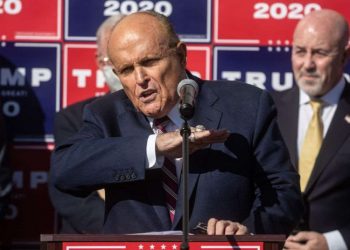The lawsuits of Trump and his lawyers in courts
Despite all major news networks projecting on November 7 that Joseph R. Biden has won the 2020 U.S. presidential election, and near universal international recognition of his victory, President Donald J. Trump has refused to concede defeat. Mr. Trump has instead promised to continue to challenge the vote-counting process and election results in court. But thus far, Mr. Trump’s litigation strategy has failed to deliver any legal wins – and seems more designed to attract media attention than court victories. Many of the lawsuits already filed on behalf or in support of Mr. Trump’s campaign have been summarily dismissed, and those suits that remain do not seek relief that, if awarded, would change the declared winner of any state. It is unclear what future lawsuits the campaign might filed, but there have been no independent reports of any election irregularities that could support a meritorious lawsuit. According to reporting by The New York Times on November 7, “n seeking to foment widespread doubt about the legitimacy of the election, Mr. Trump and his surrogates seemed less focused on substantive legal arguments that could hold up in court than on bolstering the president’s political narrative, unsupported by the facts, that he...





